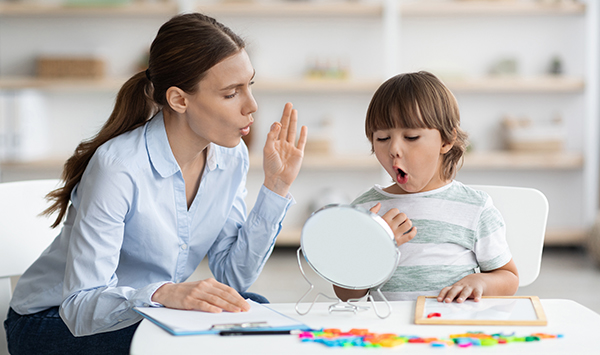Understanding Children Counselling: Types and Benefits
Cuerpo
Childhood is an important landmark in every person's life. Anything in that stage directly impacts how they behave later in adulthood. The quality of the child's relationship with their significant adults and the environment in which they are growing greatly affects their cognitive, emotional, and social development.
In this blog will discuss Children counselling, exploring its types, benefits, importance, and common issues.

What Is Child Counselling?
Child counselling is a branch of counselling that focuses only on the mental well being and mental issues of children. Age group matters in psychology, so different branches of counselling are assigned to different age groups. In child counselling, the counsellor caters to children under 11.
Child counselling can be similar to adult counselling, where the children are given a safe space to talk and communicate in various ways.
What Kinds of Issues Do Child Counsellors Treat?
Today's environment is competitive not only for adults but also for children. In today's world, the focus is more on excelling in academics and extracurricular activities, and very little focus is given to enjoying the process or the activities. So, children, too, face stress and anxiety at such a young age.
Along with emotional disturbances, child counsellors also play an essential role in identifying academic difficulties and referring them to educators.

Other common issues that child counsellors treat include:
-
Anxiety
-
Abuse (physical, sexual, verbal, etc.)
-
Bedwetting
-
Behavioural issues
-
Bullying at school or otherwise
-
Managing a parent's separation and divorce
-
Depression
-
Extended family issues
-
Grief and bereavement
-
Relocation Anxiety
-
School refusal
-
Separation anxiety
-
Self-esteem issues
-
Sibling rivalry
-
Social withdrawal
-
Sleep issues
Some signs that might show signs of distress in your child, for which they might need counselling, are:
-
Sudden aggression.
-
Rebelliousness.
-
Sudden withdrawal from social situations.
-
Anger outburst.
-
Sudden temper tantrums.
-
Difficulty in reading, writing, math, etc., which is not grade-appropriate.
-
Bedwetting.
-
Nightmares, fear of sleeping alone, etc.
-
Recurrent physical concerns.
-
Observable loss or increase of weight/appetite.
Types of Child Counselling:
-
Play Therapy: Ideal for younger children, play therapy uses games and activities to help children express their thoughts and emotions in a safe, non-verbal manner.
-
Cognitive-Behavioral Therapy (CBT): CBT aims to recognize and alter harmful thinking patterns and behaviour patterns.
-
Family Therapy: Family Counselling involves the entire family unit and addresses family dynamics and conflicts that affect the child's wellbeing.
-
Teen Counselling: Tailored to the unique challenges of adolescence, Teen counselling helps teenagers navigate issues like peer pressure, self-esteem, and identity.
Benefits of children counselling
-
Emotional Expression: Counselling provides a safe space for children to express their feelings, reducing emotional bottling.
-
Improved Communication: It enhances communication skills, enabling children to express themselves effectively.
-
Coping Strategies: Children learn healthy coping mechanisms for stress, anxiety, and difficult situations.
-
Enhanced Self-Esteem: Counselling helps kids create a healthy self-image by boosting their confidence and self-esteem.
-
Problem-Solving Skills: It gives them the problem-solving abilities they need to overcome obstacles.
Takeaway
Counselling for children can be valuable in promoting positive change.
Whether you are a student or novice child therapist, a parent of a child in therapy, or someone just inquiring about child therapy, perhaps this resource-rich article was helpful and educational.
Children's counselling brings out a child's unique strengths and boosts their sense of identity and self-esteem.
If you want to counsel your children, then contact a counsellor today to talk about your children's counselling in edmonton.











Comentarios